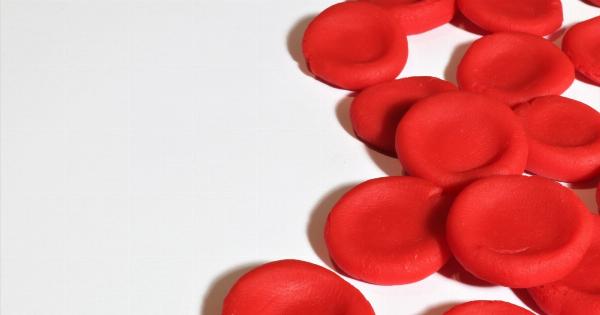Every year, millions of people around the world require blood transfusions for various medical conditions and emergencies. Blood donation plays a crucial role in saving lives and improving the health of patients in need.
World Volunteer Blood Donor Day is an annual event that aims to raise awareness about the importance of blood donation and encourage more individuals to become regular donors. By joining this global movement, you can make a significant impact and contribute to a healthier future for countless people.
The Need for Blood Donation
Blood is a vital resource that cannot be manufactured or replicated. It is needed for various medical interventions, including surgeries, trauma care, cancer treatments, and childbirth-related complications.
Additionally, individuals with chronic conditions such as thalassemia and sickle cell disease require regular blood transfusions to maintain their health and well-being.
Despite advances in medical science, there is no substitute for human blood. The demand for blood is constant, but the supply often falls short.
According to the World Health Organization (WHO), blood shortages affect every country, and many patients do not receive the necessary transfusions on time.
Blood components, such as red blood cells, platelets, and plasma, have different shelf lives. This makes it crucial to maintain a steady supply of fresh blood donations to meet the immediate needs of patients.
Regular donations are essential to replenish stocks and ensure that blood is readily available whenever and wherever it is needed.
World Volunteer Blood Donor Day: A Global Movement
World Volunteer Blood Donor Day, celebrated on June 14th each year, serves as a platform to recognize the individuals who selflessly donate blood and save lives.
It is an opportunity to thank voluntary blood donors worldwide and raise awareness about the importance of regular blood donation.
The day also aims to encourage more people to become regular blood donors. By doing so, they can ensure a stable and sufficient supply of blood for medical emergencies and routine treatments.
World Volunteer Blood Donor Day provides an occasion for communities, organizations, and governments to promote blood donation as a life-saving act and highlight the significant role it plays in healthcare systems.
The Impact of Blood Donation
Blood donation has a direct and positive impact on patients’ lives. A single donation can save up to three lives, as blood can be separated into various components and used for different purposes.
Here are some of the ways in which blood donation saves lives:.
1. Emergency Services and Trauma Care
In cases of accidents, natural disasters, or other emergencies, immediate access to blood can be critical. Blood transfusions help stabilize patients and provide them with the necessary support to recover and survive traumatic injuries.
2. Surgical Procedures
Many surgical interventions require blood transfusions. From routine procedures like knee replacements to complex open-heart surgeries, donated blood is an essential resource in ensuring the success of these operations.
3. Cancer Treatment
Patients undergoing chemotherapy or radiation often experience a decrease in their blood cell counts. Blood transfusions provide them with the necessary red blood cells and platelets to maintain their strength and continue their treatment.
4. Maternal and Child Health
Complications during childbirth can lead to excessive bleeding, endangering both the mother and child. Blood transfusions can save lives in such critical situations, ensuring the well-being of both the mother and the newborn.
5. Chronic Blood Disorders
Individuals with genetic blood disorders, such as thalassemia and sickle cell disease, require regular transfusions as a part of their ongoing treatment.
Blood donors provide these patients with the gift of life, allowing them to live healthier and more fulfilling lives.
Becoming a Blood Donor
Blood donation is a simple and safe process that anyone in good health can undertake. If you’re considering becoming a blood donor, here are a few essential steps to get started:.
1. Check Eligibility
Before donating blood, you will need to ensure that you meet the eligibility criteria set by blood banks or donation centers.
Typically, this includes being in good health, within the acceptable age range, and not having certain medical conditions or recent surgeries.
2. Find a Donation Center
Locate a blood donation center or mobile donation unit near you. Many hospitals, clinics, and non-profit organizations have facilities dedicated to blood donation.
It’s crucial to choose a reputable and recognized center to ensure the safety and proper handling of your donation.
3. Make an Appointment
While some donation centers accept walk-in donors, it’s advisable to make an appointment in advance. This helps streamline the donation process and ensures that the center can accommodate you at a convenient time.
4. Prepare for Donation
Prior to your donation, make sure to eat a healthy meal and stay well-hydrated. Avoid consuming alcohol or any medication that could affect your eligibility to donate.
The staff at the donation center will also provide you with detailed instructions and answer any questions you may have.
5. Donate and Rest
The actual blood donation process typically takes around 10-15 minutes. Afterward, you will be given refreshments to help you replenish your fluids. It’s essential to rest for a short while to allow your body to recover fully.
6. Continue Regular Donations
Blood donations are needed year-round, and it’s crucial to become a regular donor. Depending on local regulations, you may be able to donate every few months.
Consistent donations help maintain a stable blood supply and ensure that patients receive timely and necessary transfusions.
Creating Awareness and Encouraging Others
Beyond becoming a blood donor, you can also contribute to the cause by raising awareness and encouraging others to donate. Here are a few ways to make a positive impact:.
1. Share Personal Experiences
If you have personally benefited from blood transfusions or have a loved one who has, share your experience with others. Personal stories and testimonials can be powerful tools in inspiring others to become volunteers.
2. Organize Blood Donation Drives
Collaborate with local community organizations, schools, or workplaces to organize blood donation drives. These events can make it easier for individuals to donate by bringing the donation centers closer to them.
Encourage your social network to participate and promote the event extensively.
3. Volunteer at Blood Donation Centers
Support blood donation centers by volunteering your time and skills. You can help with administrative tasks, organize donor information, or assist in creating awareness campaigns.
4. Use Social Media
Utilize social media platforms to spread information about World Volunteer Blood Donor Day and the importance of blood donation. Share facts, statistics, and success stories to engage and educate your network.
You can also use relevant hashtags to reach a wider audience.
Conclusion
Blood donation remains a critical aspect of modern healthcare systems, ensuring that patients receive the life-saving treatments they need.
By joining World Volunteer Blood Donor Day and becoming a regular blood donor, you can contribute to this noble cause and make a direct impact on countless lives. Together, let us create awareness, encourage others, and celebrate the selfless volunteers who save lives through the simple act of donating blood.




























